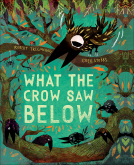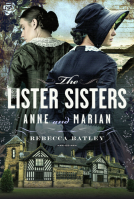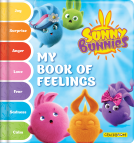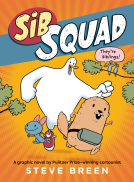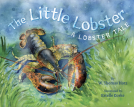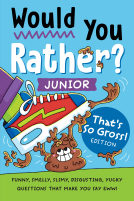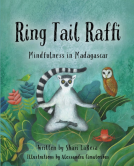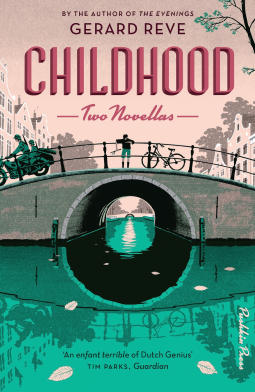
Childhood: Two Novellas
by Gerard Reve
This title was previously available on NetGalley and is now archived.
Send NetGalley books directly to your Kindle or Kindle app
1
To read on a Kindle or Kindle app, please add kindle@netgalley.com as an approved email address to receive files in your Amazon account. Click here for step-by-step instructions.
2
Also find your Kindle email address within your Amazon account, and enter it here.
Pub Date Mar 12 2019 | Archive Date Nov 25 2018
Talking about this book? Use #ChildhoodTwoNovellas #NetGalley. More hashtag tips!
Description
Young Elmer longs to make friends and tries to control the world around him by forming secret clubs, of which he is always the president. When he invites Werther to become a member, a game of attraction and repulsion begins. What follows is a psychological masterpiece; Reve brilliantly conjures up a child's whole world, full of oppression and
enchantment.
During the Nazi occupation of Amsterdam, a boy watches as the family of one of his friends slowly loses everything and is then taken away. This is a deceptively simple story imbued with subtle horror.
These two classic novellas, from the giant of post-war Dutch literature Gerard Reve, have all of the uncanny atmosphere and the incisive, dark wit of The Evenings.
Advance Praise
Praise for The Evenings -
• "A masterpiece... What can I say that will put this book where it belongs, in readers' hands and minds?... Reve keeps the reader breathless right through to the grand finale - Tim Parks, Guardian
• "A masterwork of comic pathos... one of the finest studies of youthful malaise ever written... Should cause many readers to revise their opinions of The Catcher in the Rye. In all fairness to Salinger, The Evenings is so much better - Eileen Battersby, Irish Times
• "Like BS Johnson and Kafka wandering the crepuscular streets of 1940s Amsterdam together - in a good way" Alex Preston, Observer Books of the Year 2016
• "The funniest, most exhilarating novel about boredom ever written. If The Evenings had appeared in English in the 1950s, it would have become every bit as much a classic as On the Road and The Catcher in the Rye." Herman Koch, author of The Dinner
Available Editions
| EDITION | Other Format |
| ISBN | 9781782274582 |
| PRICE | CA$29.00 (CAD) |
| PAGES | 128 |
Average rating from 21 members
Featured Reviews
First published in the Netherlands in 1949 and 1950; published in translation by Pushkin Press on March 12, 2019
Childhood collects two novellas that were published a few years after World War II. Both are told from a boy’s perspective.
“Werther Nieland” is the name of a “pale, sallow-skinned boy” who first meets Elmer at the home of Elmer’s developmentally disabled neighbor. Elmer narrates the story. He is also a boy, but unlike the neighbor boy and Werther, Elmer is bossy and cruel. Elmer creates clubs and appoints himself the president, but the clubs never have more than two or three members and all but Elmer are quickly expelled or quit due to Elmer’s testiness.
Elmer is a darkly imaginative child; Gerard Reve’s ability to recreate a child’s imagination is one of the story’s highlights. Elmer’s first club is dedicated to the creation of tombs and the cremation of dead (or nearly dead) birds. Elmer advises the other boys that the club has many enemies, and insists on blind obedience to the club president, who happens to be Elmer. The reader might wonder what kind of adult Elmer will turn out to be, but given the imminent Nazi invasion, it seems likely he will be drawn to the Germans.
The novella is notable for Werther’s home life. When Elmer visits Werther, Werther’s mother makes them stay inside so that she can pretend to be childlike. Werther’s father is obsessed with Esperanto; his mother seems to be obsessed with boys (or “young men” as she fondly if questionably labels them). The story’s “ick” factor begins with the mother’s ambiguously suggestive comments and is heightened when she playfully grabs Elmer’s crotch. Werther’s mother has an obvious mental illness, but Werther’s aunt attributes her behavior to a nervous condition brought on by fatigue. Perhaps that’s the way families in that place and time dealt with emotional illnesses.
“The Fall of the Boslowitz Family” is narrated by Simon, who is seven when the story begins. His parents introduce him to the Boslowitz family at a children’s party. Simon makes friendships within the family (he considers the adults to be his uncle and aunt) that last through Simon’s early teen years, when Germany invades the Netherlands. The adults talk of war, which Simon thinks will be cool to watch, but his exposure to combat is limited to watching airplanes fly overhead on their bombing runs.
The Boslowitz family is Jewish. Simon doesn’t understand and doesn’t pay much attention as Nazis begin to take Jews away, because the adult discussions he overhears do not resonate with his perspective as a child. He pays more attention when the members of the Boslowitz family are threatened. It is only the father’s paralysis that keeps him from being taken away; one of his sons is beaten on a pretext. The family is fearful of going outside and is eventually prohibited from leaving the city. They hope that the father’s physical disability and a son’s mental disability will inspire mercy. The way Simon relates those events makes clear that he is only beginning to understand what is happening.
The two novellas are very different, but they are connected by a child’s unease in a troubling world that the child cannot fully comprehend. Seeing the world from a child’s eyes reminds the reader of how children misinterpret the adult world, or try to frame it in terms they understand.
RECOMMENDED
Readers who liked this book also liked:
Carine Laforest;
Children's Fiction
W. Thomas Hotz, illustrated by Estelle Corke
Children's Nonfiction, Outdoors & Nature, Science
Editors of Happy Fox Books
Children's Fiction, Children's Nonfiction, Crafts & Hobbies
